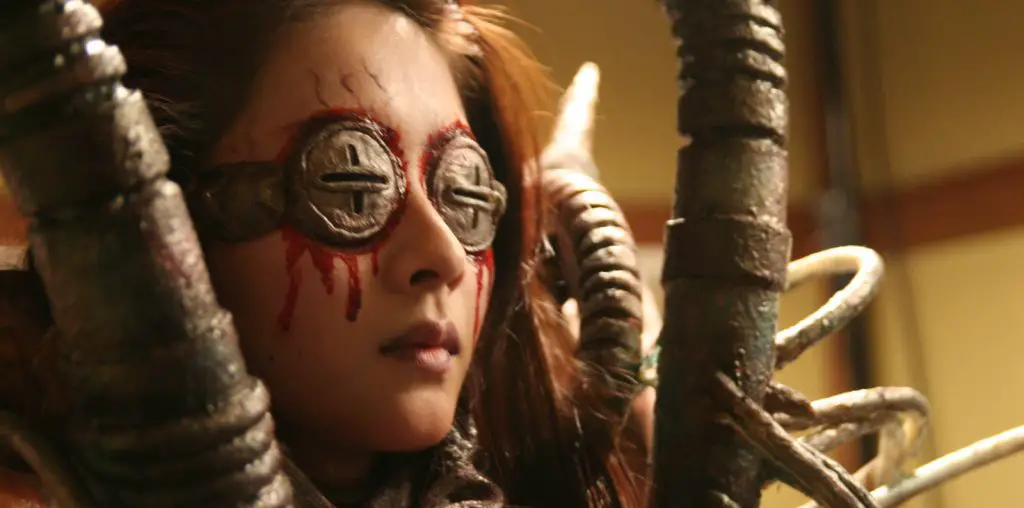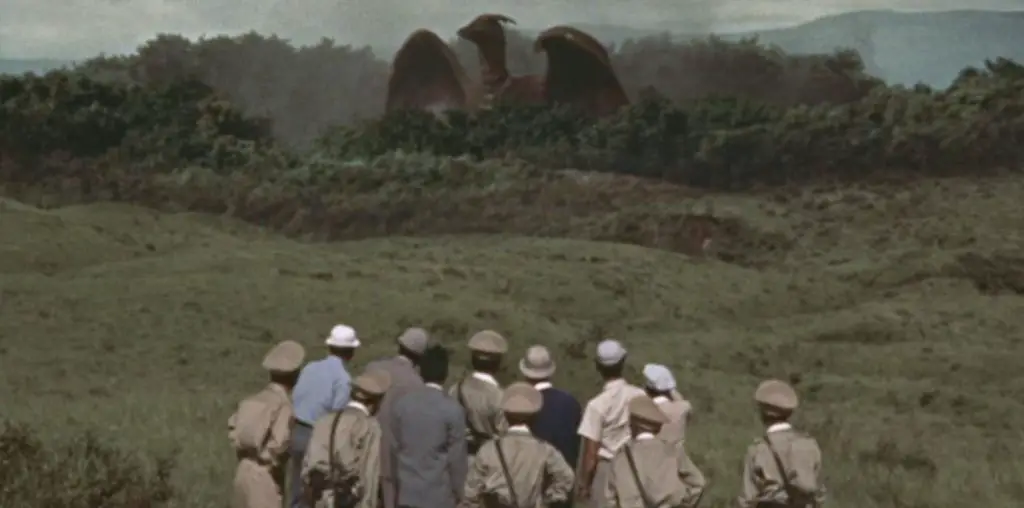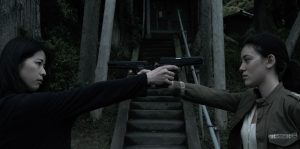
It seems that Hollywood is not the only place churning out cookie-cutter formulaic plots in films. Case in point, Masaya Kato’s Ouija Japan, which offers nothing new or engaging story-wise to the increasingly crowded field of flicks that center on or use an Ouija board; in this case, it is the Japanese version, Kokkuri. In his defense, the first-time filmmaker does combine the Oujia tale with the Japanese trope of the “death game,” which seems more novel than it plays out. But, being predictable does not matter in a horror project, so long as it delivers the scares. So, does the writer/director deliver on the implicit promises of the genre to audiences?
Karen (Ariel Sekiya) moved to her husband’s hometown six months ago. The problem is that he’s Japanese, and she is not. While she is trying her darnedest to learn the language and culture, her neighbors in and around the apartment complex are quite rude to Karen and make fun of her for lack of knowledge of Japanese. This bullish behavior is the worst in Akiyo (Eigi Kodaka), who holds quite a bit of sway in the community. But, there is one person who understands and likes Karen, her best friend, Satsuki (Miharu Chiba).
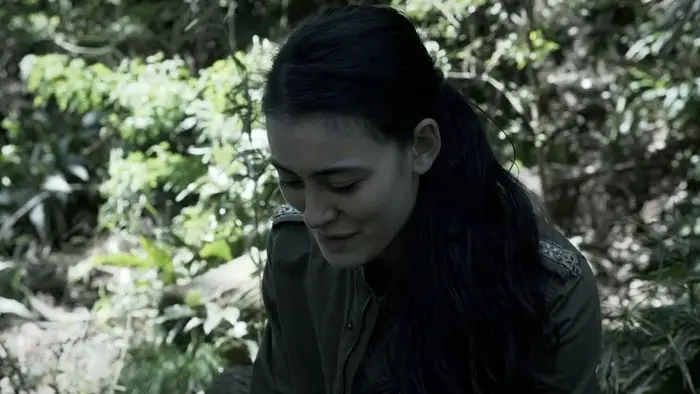
“…the deity comes in the form of a fox masked person who wills all 16 folks into a death battle.”
In an effort to bond with her neighbors, Karen convinces Satsuki to join her in going to a two-day getaway with all the females of the apartment complex. While out, they decide to play around on a Kokkuri board, and upon discovering the coin they are using comes from an offering box, the women become scared. Why? Because this is an act of disrespect, and sure enough, the deity comes in the form of a fox masked person who wills all 16 folks into a death battle. Can Karen and Satsuki survive, or are they already on a fatal path?
Ouija Japan lacks in several respects, chiefly the acting. While it does eventually get better, for some 50-minutes of this 78-minute feature, the cast is wooden and seemingly uncomfortable in front of the camera. Sekiya delivers most of her lines in a way that suggests she learned her dialogue phonetically (I do not know if that is true, but it feels that way). While she does sell the horror and action beats (much) later in the movie very well, she comes across as confused in the ordinary, everyday interactions.
This is also true of Kodaka. Her English is fine, but she’s unable to register any emotion beyond dull surprise. Chiba at least does come off as an angry, rude “Karen”-type, and as such, her more stand-offish deliveries might be intentional. Unfortunately, the supporting cast does not fare much better, though once again, when the battle royale commences, everyone handles the physical aspects and combat better than their line readings would suggest.
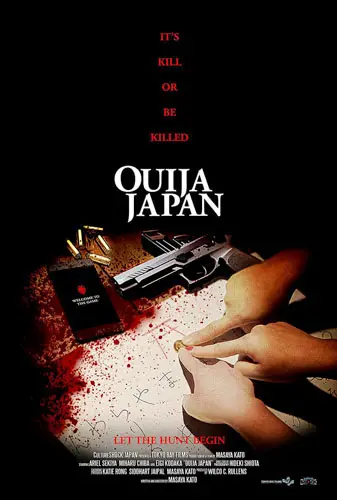
"…efficiently highlights Karen's isolation in just a few images and edits."
